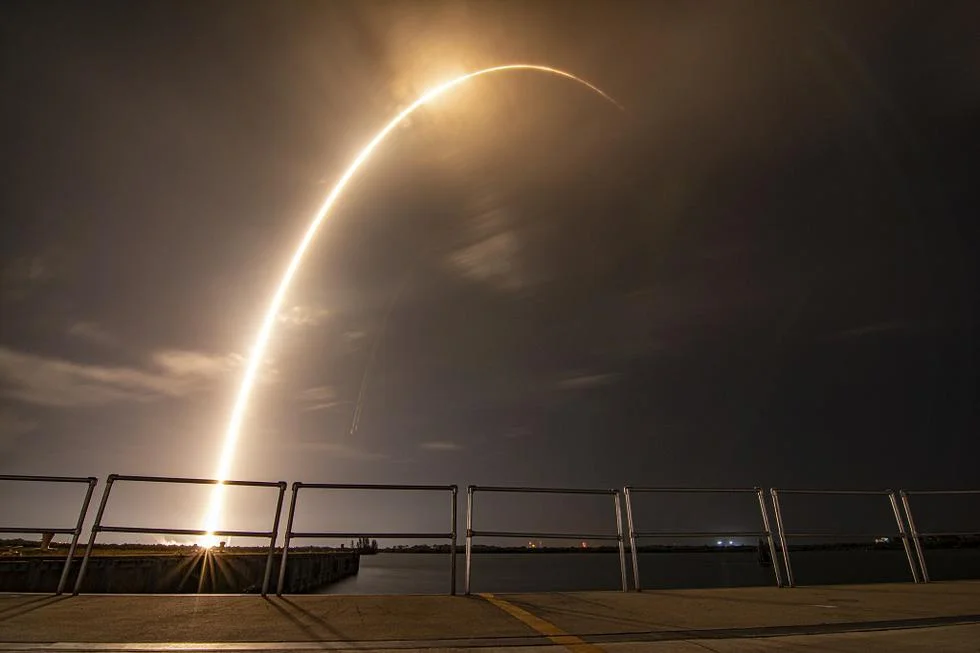
Starlink’s Dominance in the Space Race: Can Amazon, China, or Anyone Else Catch Up?
The battle for dominance in low Earth orbit (LEO) is heating up, with Starlink, spearheaded by Elon Musk's SpaceX, currently holding a commanding lead. But can Amazon's Project Kuiper, Chinese initiatives, or other contenders disrupt Starlink's trajectory? This article delves into the escalating space race, examining the key players, the challenges they face, and the potential geopolitical implications of a Starlink-dominated future.

Amazon's Project Kuiper recently took a significant step forward with the successful launch of its first operational satellites. This marks the beginning of a direct challenge to Starlink's supremacy, setting the stage for a high-stakes competition between Jeff Bezos and Elon Musk. The project aims to provide high-speed internet to remote areas, mirroring Starlink's mission but with Amazon's resources and retail infrastructure at its disposal.
Starlink's current position is undeniably strong. With over 7,300 operational satellites, it controls almost two-thirds of all spacecraft in orbit. This advantage stems from SpaceX's unique capabilities, including frequent and low-cost Falcon 9 launches, a high-volume satellite production facility, and a culture of rapid innovation. As Patricia Cooper, founder of Constellation Advisory, puts it, SpaceX's "production line and the launch machine" are their superpower.
However, the LEO market is expanding rapidly, attracting numerous players. Eutelsat's OneWeb targets government and enterprise markets, while Canada's Telesat is developing Lightspeed for similar high-margin sectors. Even terrestrial giants are making moves. In late April, Amazon launched its first Kuiper satellites.
China is also a major player. With two systems, Guowang and SpaceSail, under development, China aims to deploy a combined 26,000 satellites. SpaceSail, supported by the Shanghai municipality, appears to be progressing faster. The US think-tank Rand published a study this year that found both the Chinese Communist party and the People’s Liberation Army “consider Starlink to be a tool of military power” giving added impetus to the Chinese government's strategy.
The competition extends beyond just commercial interests, with geopolitical considerations playing an increasing role. Governments are wary of Musk's influence, particularly after incidents like his refusal to grant Ukrainian forces access to Starlink over Crimea. This has prompted the EU to invest in its own sovereign broadband service, IRIS², and Taiwan to plan its LEO system.

Starlink has also begun service in Bangladesh before India and Pakistan, while the three countries were engaged in military and diplomatic tensions. "Starlink's high-speed, low-latency internet is now available in Bangladesh," the company posted on X. The service starts at 4,200 taka ($35) for the service now available nationwide, said Yunus aide Faiz Ahmad Taiyeb, with a one-time payment of 47,000 taka required for setup equipment.
Amidst this competition, concerns about SpaceX's potential monopoly are growing. Hal Singer, a professor of economics at the University of Utah, points to instances of corporate predation and exclusionary contracting. Colonel Richard Kniseley of the Space Force's Commercial Space Office has voiced concerns about relying too heavily on a single company.
The race to dominate LEO is not just about connectivity; it's about economic and geopolitical power. As Brendan Carr, chair of the FCC, states, it will have "very significant consequences in terms of economic opportunity, connectivity, and national security."
The future of space-based internet is uncertain, but one thing is clear: Starlink currently holds a significant advantage. Whether Amazon, China, or other players can successfully challenge this dominance remains to be seen, but the competition promises to reshape the future of global connectivity and geopolitical dynamics.
Will Starlink maintain its lead, or will a new contender emerge? Share your thoughts and predictions in the comments below!